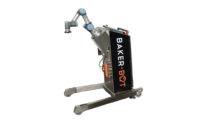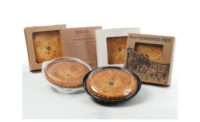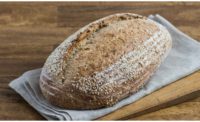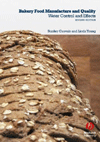The new FT722 filling table from Vemag Maschinenbau GmbH is designed to give bakery operations a flexible and simple automation solution. According to the company, the unit can be used to fill mixtures gently and precisely into baking tins or deposit them onto trays.
Bakeries are looking for robust, powerful, fast, and flexible machines to produce high-quality baked goods despite high cost pressures and staff shortages. Furthermore, they need machines to be quick and easy to clean. According to Vemag, their engineers have developed the FT722 filling table to produce a wide variety of baked goods with exact weights in premium quality. The products reportedly are portioned, deposited, or loaded precisely and continuously onto trays or into baking tins.
By combining a Vemag dough portioner with the filling table, various baked goods can be produced from dough and batter, reportedly with a high degree of weight accuracy and automation. This allows bakeries, according to Vemag, to manage their staff and raw materials more efficiently and optimize their production processes. Biscuits and cookies can be automatically placed on trays. Also, the filling table can be used to fill baking tins or cake rings with sponge cake or muffin batter extremely accurately, quickly, gently, and precisely, company representatives report.
What’s more, custom shapes such as lettering, logos, or trimmings, e.g. on cakes, are also possible. The baking trays are positioned and removed manually. The production of cookies, sponge cakes, fruit masses, muffins, brownies, gluten-free products, pound cakes, or biscuits, is thus semi-automated. Creams, desserts, and other masses can also be filled into jars, cups, and other containers. This makes the FT722 suitable for use in catering companies or commercial kitchens.
The work surface of the FT722 is mounted on a mobile stainless-steel frame. This reportedly allows the attachment to be moved quickly and easily during production or to be transferred to the cleaning area. The work surface of the filling table serves as a support surface for a carrier (slide) that moves in two axes. This carrier is moved below the work surface via servo-driven kinematics. Power is transmitted by permanent magnets in the carrier and in the counterpart beneath the work surface.
Customer-specific trays, forms, glass jars, etc. can be placed loosely on the carrier using an adapter. The tray is manually placed and removed at a predefined position, which can be freely selected and is automatically approached for tray/form change. By controlling the servo motors, the installed kinematics are moved in different angular lines. This allows different X-Y positions to be approached.
Using a touch panel, the baker can either enter the coordinates manually or use the pre-installed programs and storage patterns. It is also possible for the intelligent control system to calculate the depositing pattern itself by entering the tray dimensions and the desired number of portions per tray. The control system makes it easy to operate the equipment, even for unskilled employees. The FT722 offers flexible, modular, compact, hygienic, and mobile design. Full wet cleaning is possible.
Related: Technology can alleviate supply chain headaches: PMMI







